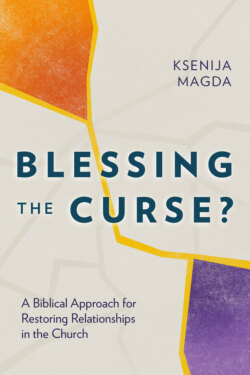Читать книгу Blessing the Curse? - Ksenija Magda - Страница 27
На сайте Литреса книга снята с продажи.
Economic Abuse: the Privatisation of the Common Good
ОглавлениеThe economy, which is closely connected with ecology, is concerned with the management of what is intended for the common good and therefore belongs to all people. When we talk about the common good, people often believe that there are goods – resources and our access to them – that are not common, but private. Yet nothing that we possess is intrinsically ours. Hierarchies have deluded us into thinking that those who are higher up on the system are entitled to a bigger portion of the common resources – bigger living spaces, more water per day, more food, more oil. This thinking is directly linked with the delusion that we are somehow better than other people because of our race, gender, nationality, or a birth right passed down from a wealthy or even Christian family. Feminist ecology draws attention to this irrational line of reasoning.[25] However, much feminist political ecology is partial and dogmatic, offering vague, one-sided solutions for women to act more like men in order to compete on equal terms or to engage in contextual, “spiritual” approaches based on female goddesses.
Structures must change if women are to prosper as women, and this is not a question of women and feminism alone. We also need to see the injustices endured by those who are at the very bottom of the hierarchy and how their rights and needs are being trampled upon, for human economic injustice targets everyone who is inferior on the hierarchical system – children as well as men can be excluded by the human gods at the top through anti-Semitism, nationalism, racism, and so on. Exploitation does not recognize gender or political standing in terms of left (social) or right (capitalism). It just likes to find determinants which easily carry the myth of exclusion.
By definition, hierarchies are structures of exploitation. Those who are higher up the ladder create dubious systems that rely on myths and traditions to exploit others for generations in order to keep the common “goods” in their hands. How can selling money be a legitimate source of income? How can true success in business be measured only by financial profit? These are absurd notions, because there is obviously no real value in such transactions. Bank “products” were invented to shift information about accumulated common good from one end of the world for huge profit, but without real cost. Whoever outsmarts the other by intricate unclear schemes wins – and the outsmarting is linked with direct immoral action, as the economic crisis of 2008 displays. Yet the big players somehow disappear, while the “little people” are left with unjust laws to make up for their mistakes. This has become an easy game. Banks invented it, but this system of selling nothing is used by many economic sectors that deal with what would otherwise be seen as a common good – for instance, energy. These exploitive economic systems function with the overall blessing of the ruling structures, because they share in the income from this rip-off.
For instance, in my country, it has become impossible to track what a family really spends on electricity due to newly invented “products” in the energy industry. The formulas have become too complicated for people with basic maths skills. Water, too, is becoming a commodity, and companies are buying the water sources from the state and bottling it. There are already places on earth where water is scarce and is becoming more inaccessible by the day. In many places, people no longer own the land on which their house stands, which means they do not have rights to drill for oil or water – or to keep business and government interests from doing so for their own profit. In some places, even the air above one’s house does not belong to them anymore. The absurdity of these examples reveals the absurdity of an economy based on hierarchies of power, whose only goal is increased profit. Meanwhile, hierarchies in the economy and politics walk hand-in-hand. Hierarchies work to accumulate the common good for a small number of people who are sucking life from the masses.
These stories are so simple, and yet people willingly work within such structures of sin, motivated by the hope that one day they will find their way closer to the top. If we just try hard enough and comply with the injustices long enough, we will be able to trick the system, and it will somehow catapult us among the fortunate ones on the top. The sinful systems of the world work because so many people feed into them by hoping for their little bit. When we live according to the curse, we bless the curse. But the system of the curse must be starved in order to give way to new life, which we find in the biblical principle of being in Christ.
